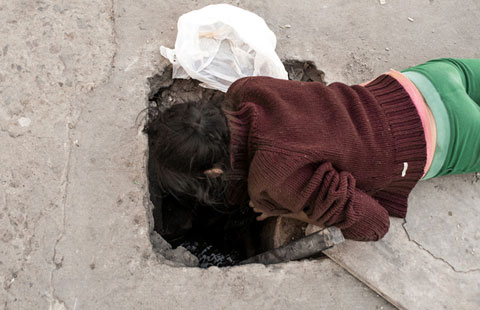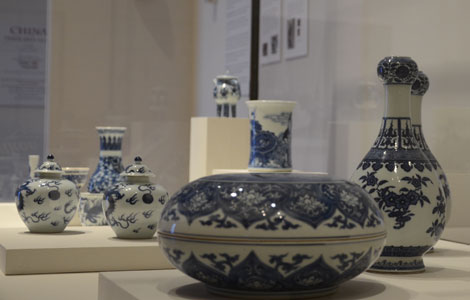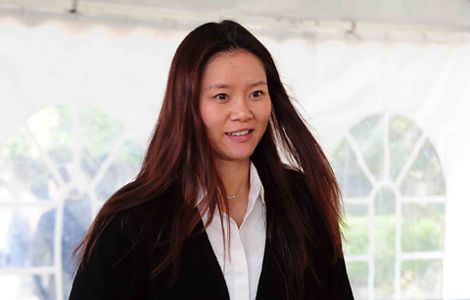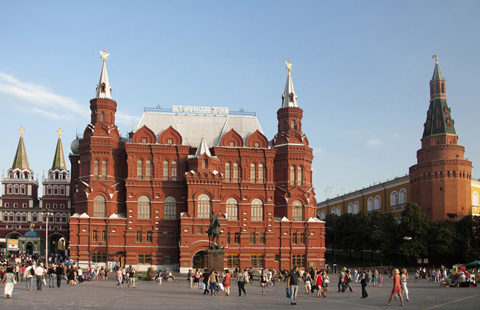Visitors from overseas to get refunds
Updated: 2015-01-20 03:18
By SHI JING And ZHENG YANGPENG(China Daily)
|
||||||||
Wendy Fung, a 28-year-old US citizen who has lived in China for more than 5 years, said most first-time tourists to the country tend to buy Chinese-inspired souvenirs or Chinese antiques, for example porcelain tea sets, intricately painted fans, or panda hats and T-shirts.
"It would be great if these souvenirs or antiques can be included in the designated shops," she said.
But Fung said that many international visitors, regardless of the number of times they have been to China, are bargain-hunters.
They want to buy Chinese-made clothing or accessories from vendors' stalls at flea markets where they can get good deals, which are not available in the designated stores, she said.
A manager at a duty-free shop in Shanghai said the policy may not prove that popular, as international tourists do not have much enthusiasm for products they can buy more cheaply at home.
Leading retail industry expert Ding Haozhou, chief executive of Zonfa Commercial Management Group, said more than 60 percent of Chinese consumers now shop for luxury products overseas, and this trend is predicted to continue.
Maintaining this high-end consumption in China should be the policy's priority, he said.
Ding also said duty-free shops should come up with more brands that consumers can find only in China. Otherwise, they will buy the same products at home much more cheaply.
According to Fitch Ratings, the Chinese retail industry has been hit by a downturn since the second half of 2013, and the outlook will remain negative for 2015.
The challenges faced by Chinese department stores last year, including stiff competition, growing consumer preference for other retail formats, and growth shifting to lower-tier cities, will persist in 2015.
Meanwhile, the number of overseas visitors to China, which has grown steadily in recent years, is still relatively low.
Ctrip, China's largest online travel agency, told China Daily, "The new policy will not boost sales of any internationally known luxury brands in the short term, as Chinese retailers do not enjoy any advantages in terms of price or design.
"However, local high-end brands are very likely to see their sales increase, including sales of silk, tobacco and liquor."
- Chinese naval escort fleet visits Germany
- At least 4 killed in clashes in Congo
- UN condemns escalating attacks by Boko Haram
- Israel steps up security for possible Syria airstrike
- Australian police raised terrorism threat to 'high'
- EU to appeal against court ruling that Hamas be removed from terrorist list: official

 7 things you may not know about Major Cold
7 things you may not know about Major Cold
 After the American dream breaks
After the American dream breaks
 United Technologies opens 300 libraries in Chinese elementary schools
United Technologies opens 300 libraries in Chinese elementary schools
 New York Philharmonic to celebrate Lunar New Year
New York Philharmonic to celebrate Lunar New Year
 Long Island collectors display Chinese art then and now
Long Island collectors display Chinese art then and now
 China's Li Na expecting first baby
China's Li Na expecting first baby
 Bank, Rockets help out school
Bank, Rockets help out school
 Top 10 trading partners of the Chinese mainland in 2014
Top 10 trading partners of the Chinese mainland in 2014
Most Viewed
Editor's Picks

|

|

|

|

|

|
Today's Top News
Economic growth edges to 24-year low of 7.4%
Drive against terrorism in Xinjiang shows result
Visitors from overseas to get refunds
Opening round of Iran sanctions fight kicks off in Senate
China: Pet-food products removal not a judgment
US to help China find fugitives
Chinese stocks dive most in 7 years
Protest breaks out at HP subsidiary
US Weekly

|

|








